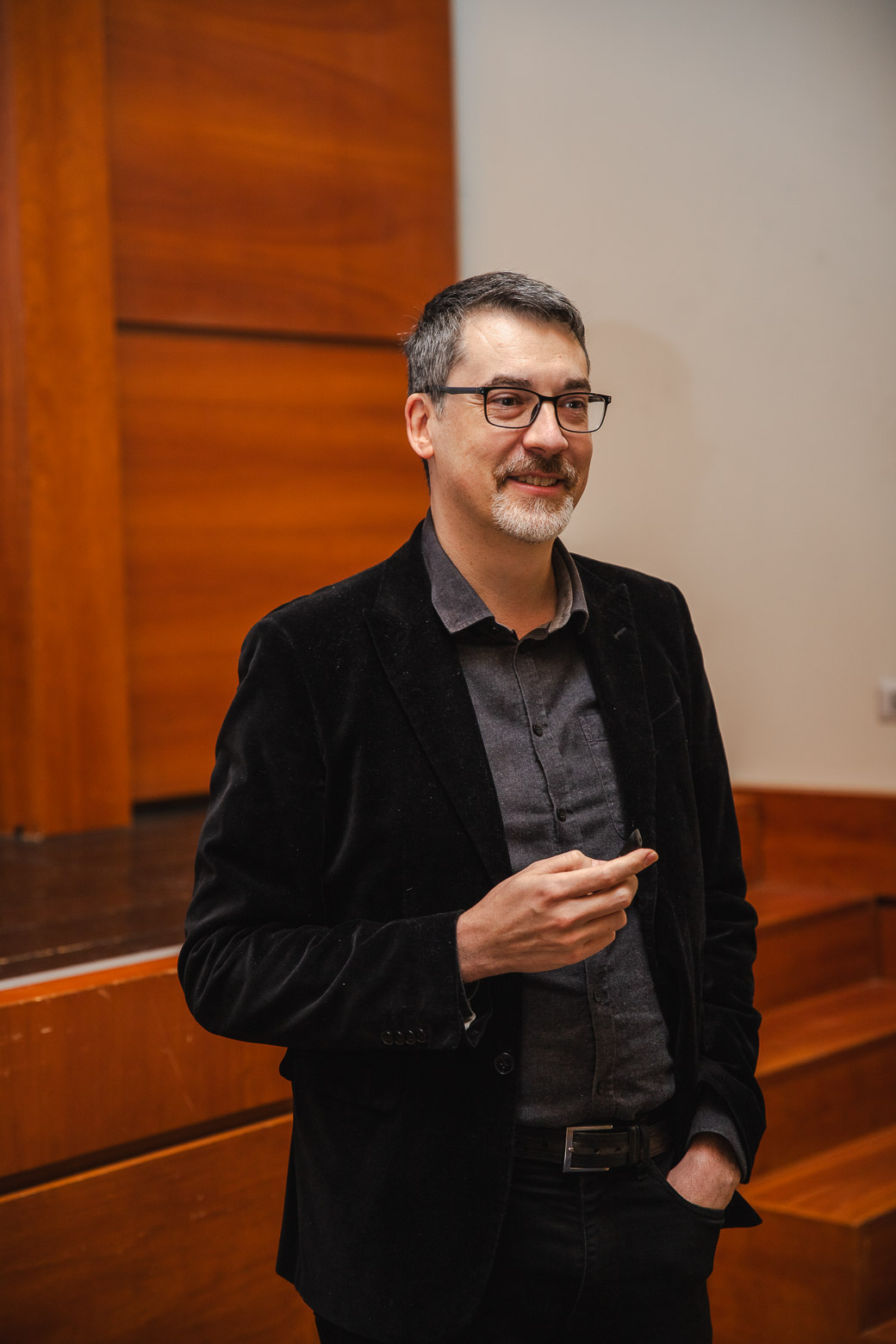“How Does Music Make Us Emotional?” JCU Welcomes Professor Davide Nardo
John Cabot University welcomed Professor Davide Nardo for a talk called “How Does Music Make Us Emotional?” on February 15. The event was organized by the Department of Psychological and Social Sciences. We often listen to music because of its power to evoke emotions. But how does it do that? In his engaging talk, Professor Nardo guided the audience of students and professors through a journey aimed at exploring the different ways in which music “makes us emotional.”

While acknowledging the role of individual differences and personal circumstances in how one experiences music, Professor Nardo addressed some of the common mechanisms through which music affects our experiences and modulates our mood.
His presentation focused on three key aspects: the physical characteristics of sounds, such as the amplitude, or frequency. The musical structure, such as the tempo, or the melodic contour, and the psychological mechanisms through which they all combine in creating a complex emotional experience.
The exploration of sound physics revealed the impact of elements such as loudness or timbre on our emotions. Through auditory examples, the audience could also experience first-hand the nature of consonant and dissonant sounds and how they can be used to induce a sense of stability or create suspense and fear.
Professor Nardo further illustrated the role of musical structure in eliciting different emotional experiences: students and professors had the opportunity to appreciate the sadness induced by a particular tempo in Mozart’s Requiem, the uplifting optimism conveyed through melodic contours in a Beatles’ song, and the feelings of uneasiness and anxiety elicited by horror movie soundtracks through the use of minor keys and odd meter.
Professor Nardo concluded by addressing how our brain responds to music. He explained the role of primitive structures such as the brainstem, which automatically responds to certain acoustical features of songs (e.g., a fast tempo, dissonance, or very high or low frequency) that in nature are often associated with danger or threat, and how learned associations, in general, play a powerful role in our emotional response to music. Indeed, we often like (or dislike) certain songs or artists because of the pleasant (or unpleasant) associations they evoke, associations that end up significantly shaping our musical taste. At a higher level instead, mechanisms such as emotional contagion, as well as visual imagery or memory processes further contribute to the rich and highly individual emotional experience evoked in the music listener.
Through practical examples, personal anecdotes, and an engaging narrative, Professor Nardo’s presentation promoted a deeper appreciation for the diverse ways in which music resonates with our emotions and shapes our subjective experiences.
Davide Nardo obtained his Ph.D. in Cognitive Psychology at Sapienza University of Rome. As a postdoctoral fellow, he worked at Santa Lucia Foundation, University College London (UK), and MRC Cognition and Brain Sciences Unit at the University of Cambridge. He is currently an Assistant Professor at the University of Roma Tre, Italy. His research topics include attention, cognitive control, memory, and music cognition.





